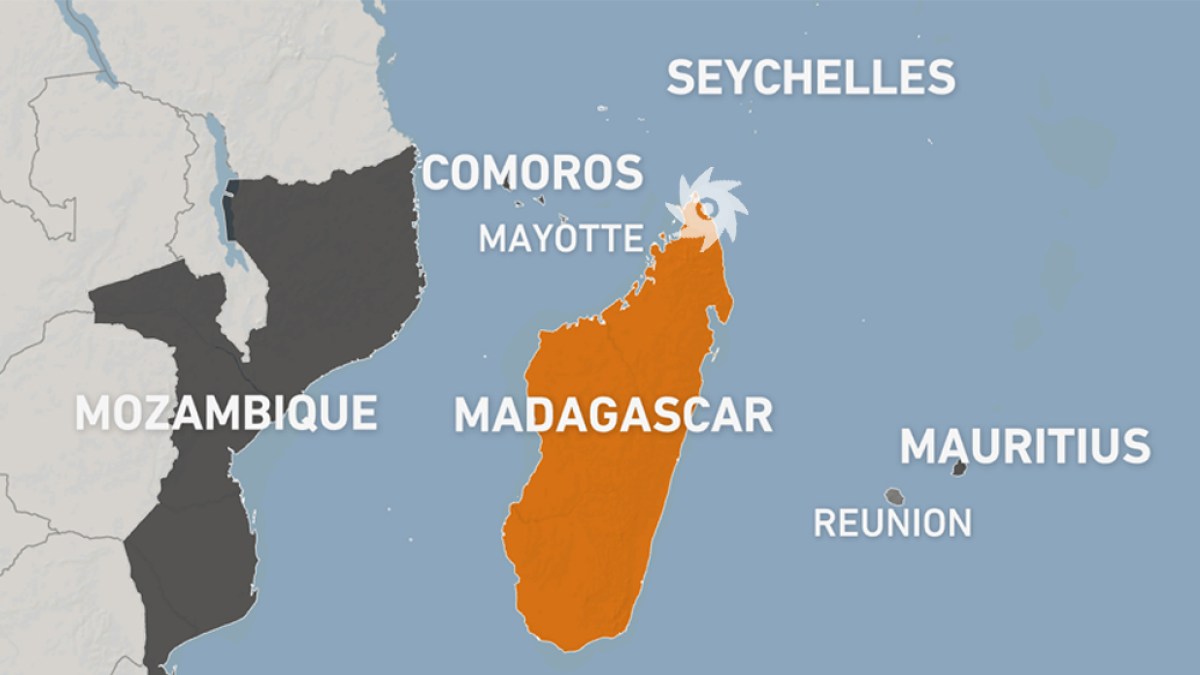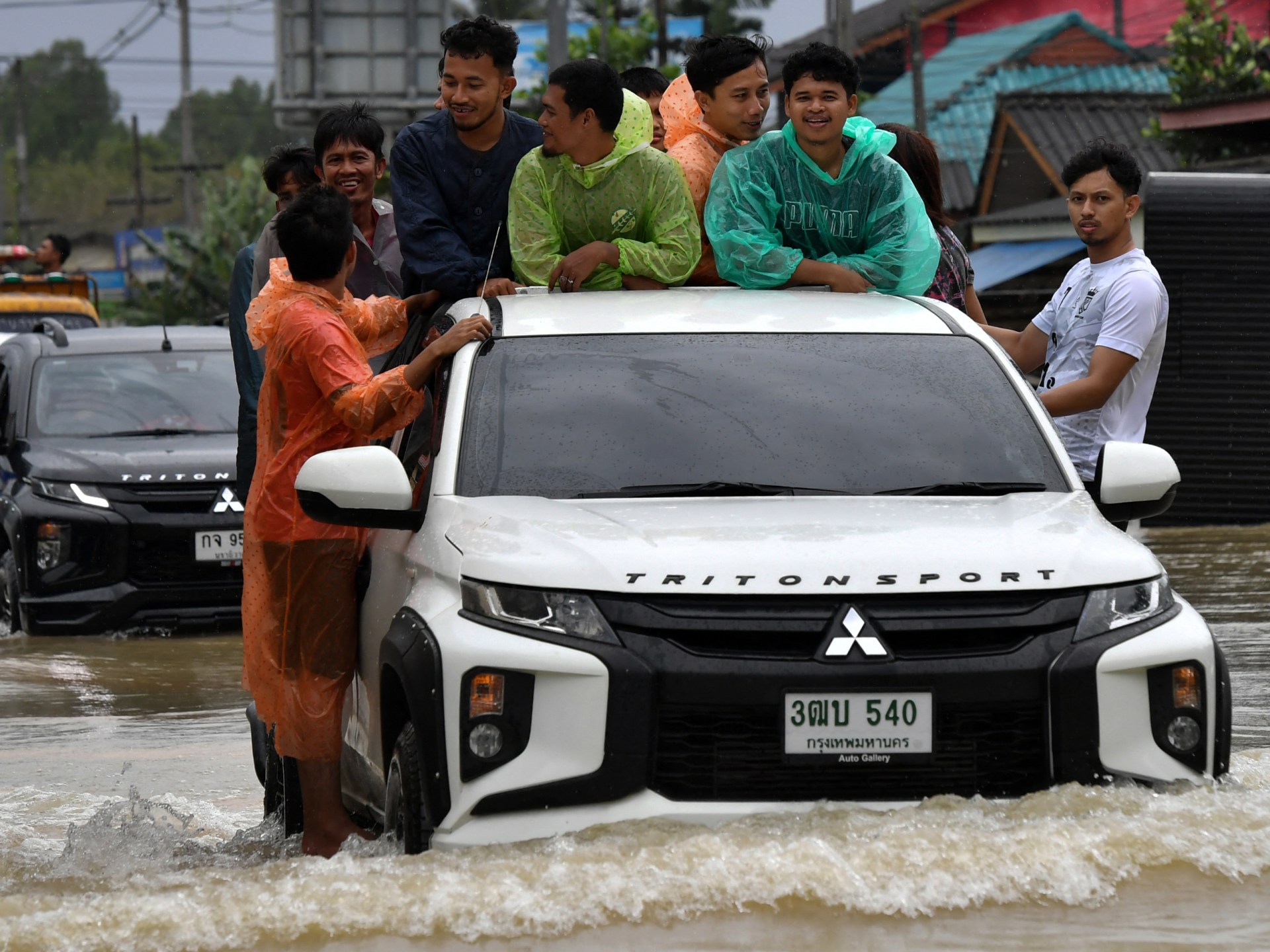Von der Leyen gets nod for second EU term, Estonia’s Kallas as top diplomat | European Union News
Ursula von der Leyen has been nominated for a second term as head of the European Commission while Estonia’s prime minister, Kaja Kallas, has been tapped as foreign policy chief after European Union leaders reached a late-night deal on the institution’s top jobs.
Under the agreement, reached despite resistance from Italian Prime Minister Giorgia Meloni, former Portuguese Prime Minister Antonio Costa was named to head the European Council.
“Mission accomplished! The European Council has delivered,” the body’s current chair, Charles Michel, told reporters early on Friday morning, following the summit in Brussels.
All three nominees are part of the centrist alliance that dominates the EU parliament and while Costa will automatically succeed Michel this year, von der Leyen and Kallas will need to win the legislature’s backing in order to be confirmed in their positions.
The vote, which is expected to be tight after a far-right surge in this month’s elections, will take place in July.
Von der Leyen expressed her “gratitude” to EU leaders for backing her for a second term and told reporters she would soon outline her political priorities with a view to winning the confidence of parliament.
Declaring himself “committed to promoting unity” among member states, Costa addressed the press by videolink, saying: “Europe and the world are facing challenging moments, yes, but the European Union has demonstrated its resilience in the past.”
Kallas, meanwhile, said she had been handed “an enormous responsibility” at a time of acute geopolitical tensions.
“There’s war in Europe, but there’s also growing instability globally, that also are the main challenges for the European foreign policy,” she said.
The three won broad backing from the EU leaders, although Italy’s Meloni abstained from the vote on von der Leyen and voted against Costa and Kallas, according to diplomats. Hungarian Prime Minister Viktor Orban, also on the hard right, voted against von der Leyen and did not vote for Kallas, they added.
Meloni said on social media platform X that she decided not to support the leadership slate “out of respect for the citizens and the indications that came from those citizens during the elections”.
There was little mystery surrounding the final lineup, as an inner group of leaders had locked in a draft deal on the trio of names days earlier, a far cry from the drama last time round in 2019, when von der Leyen eventually emerged from a backroom deal.
German Chancellor Olaf Scholz hailed the “quick, forward-looking” decisions on the top jobs, saying the nominees would “ensure that Europe is well positioned in challenging times in the coming years”.
Ukraine security deal
EU leaders at the summit also signed a security agreement with Ukraine and debated how to bolster the bloc’s defences against Russia as they agreed on their strategic priorities for the next five years.
The security deal underlines EU support for Kyiv fighting off Moscow’s invasion for a third year, despite the far-right’s recent election gains, uncertainty created by French snap elections and the presidential vote in the United States in November.
The agreement lays out the EU’s commitments to help Ukraine in nine areas of security policy, including arms deliveries, military training, defence industry cooperation and demining.
“These commitments will help Ukraine defend itself, resist destabilisation and deter future acts of aggression – more concrete proof of the EU’s unshakeable resolve to support Ukraine for the long haul,” Michel said.
The leaders reiterated their pledge to support Ukraine as long as it takes, stressing that “Russia must not prevail”, and that Ukraine must get back its territory annexed by Moscow.
Russian soldiers are currently pushing forward in the east of Ukraine with intense battles around towns including Chasiv Yar, where the military said it had pushed back Russian forces on Thursday, although a Russian commander claimed his forces had advanced in the area.
Ukraine’s energy infrastructure has also come under relentless attack with the national power company forced to impose rolling blackouts on several occasions.
Ukrainian President Volodymyr Zelenskyy, who also attended the summit, welcomed the security deal and urged the EU to deliver on its promises.
“Fulfilment of every promise is important, not only in terms of protecting lives but also to destroy the Russian illusion that they will achieve something by war,” Zelenskyy told the leaders at the EU summit in Brussels.
Check out our Latest News and Follow us at Facebook
Original Source







